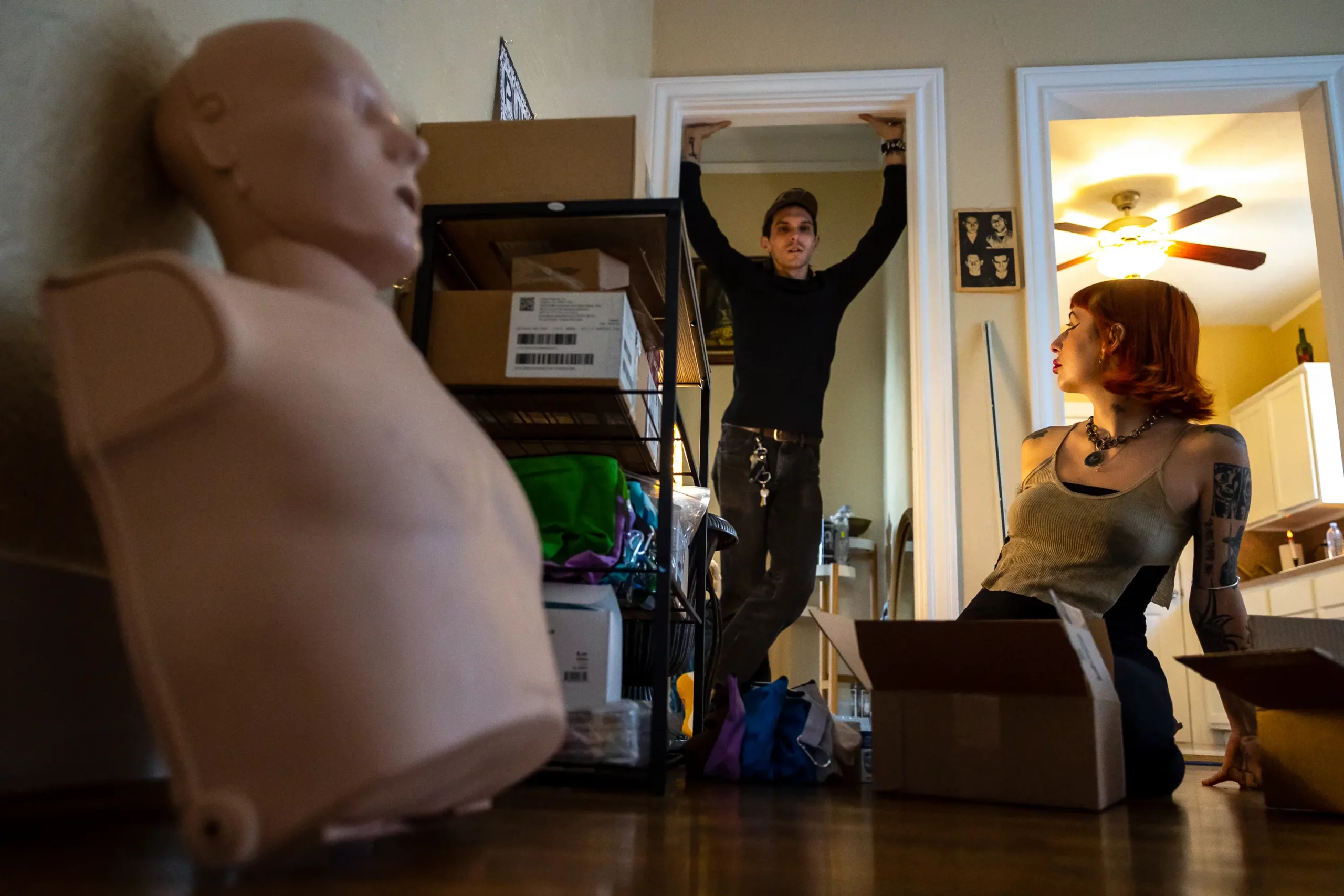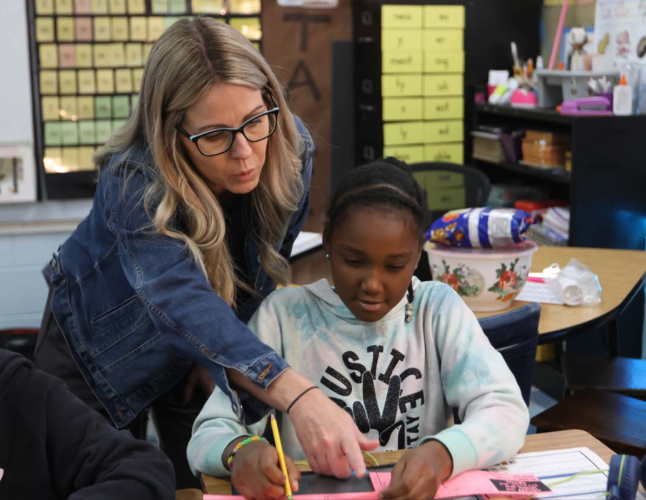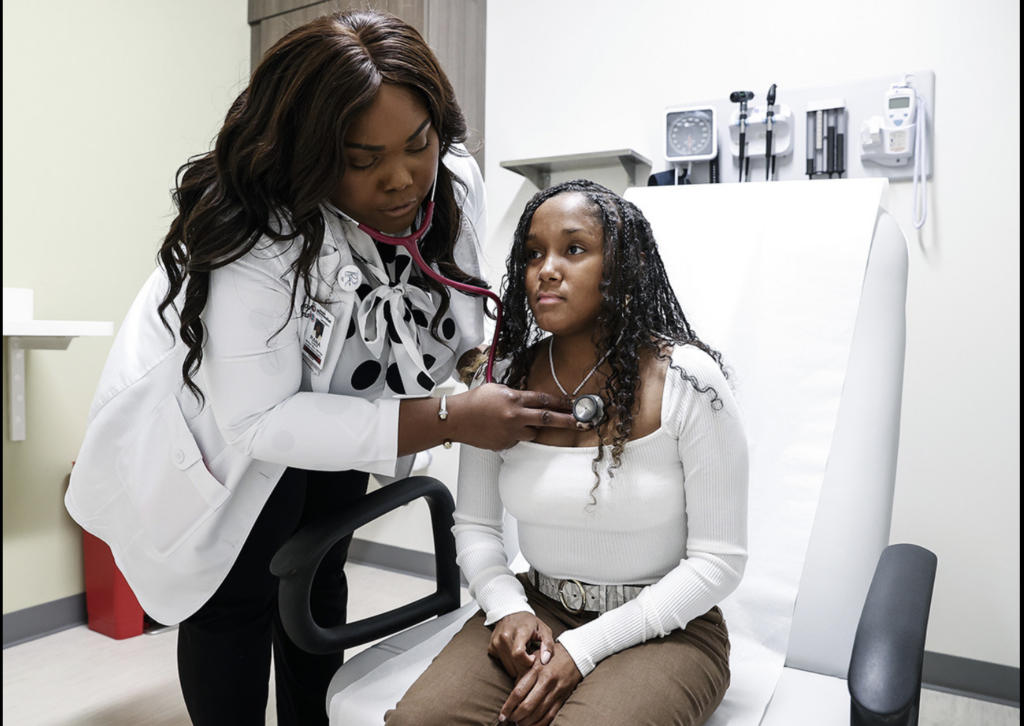Texas bans many proven tools for helping drug users. Advocates are handing them out anyway.

The Texas Tribune, by Sneha Dey, October 11, 2022: HOUSTON — Thirty minutes before a punk show this summer, Claudia Dambra set up a table and taped to it a tablecloth she had hand-painted with broad, white brushstrokes. The banner read, “PUNK NOT DEATH.”
As people flooded into the Houston music venue, Dambra stacked on top of the table several boxes of overdose reversal medication that she was giving away. But underneath, she quietly took stock of a different kind of inventory — clean syringes to help prevent the spread of diseases among drug users.
Dambra knows she has to be discreet about the syringes. Unlike overdose reversal medication, it’s illegal in Texas to carry or exchange drug-using supplies like used syringes and pipes, as well as fentanyl testing strips. Some of the people Dambra meets at venues are afraid to ask for the supplies in public, so she meets them in the bathroom. She tells them to save her number.
“I’m living in a world where organizations are operating very much underground,” Dambra said. “It’s very, very dangerous to be a drug user here. And the fact is, a lot of people are in dire straits right now as a result of the pandemic.”
Through her own experience with substance use disorder, Dambra has tested the effectiveness of a public health strategy known as harm reduction, which includes giving away sterile syringes to reduce the negative health outcomes of addiction. It can help prevent overdoses, minimize the spread of disease and put drug users in a better position to seek out treatment.
Research has shown harm reduction is one of the most effective tools to help people who use drugs, and advocates say such programs are needed more than ever. But state-run harm reduction programs don’t exist in Texas, and the Legislature has previously batted down efforts to decriminalize the possession and distribution of supplies for drug use and drug testing. To steer clear of criminal charges, Texans who use drugs will often avoid getting sterile supplies and reuse the pipes and needles they have.
Read more from The Texas Tribune here.




